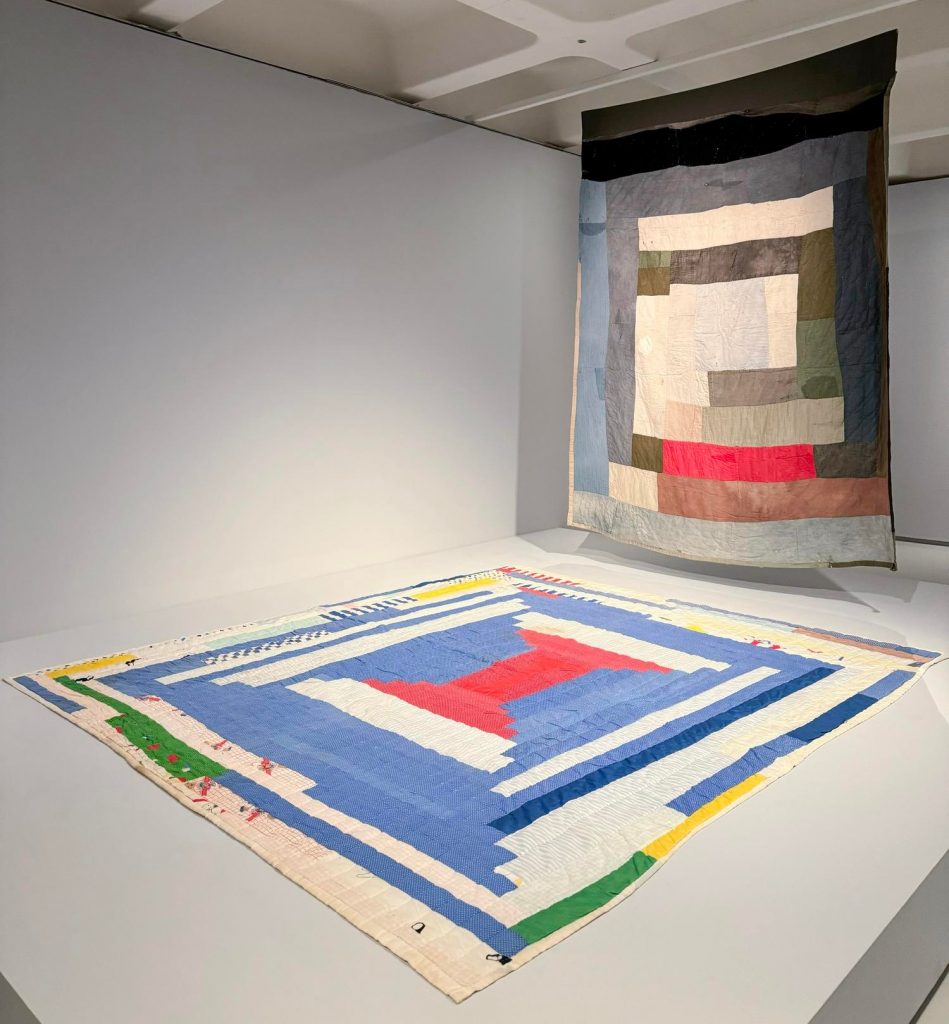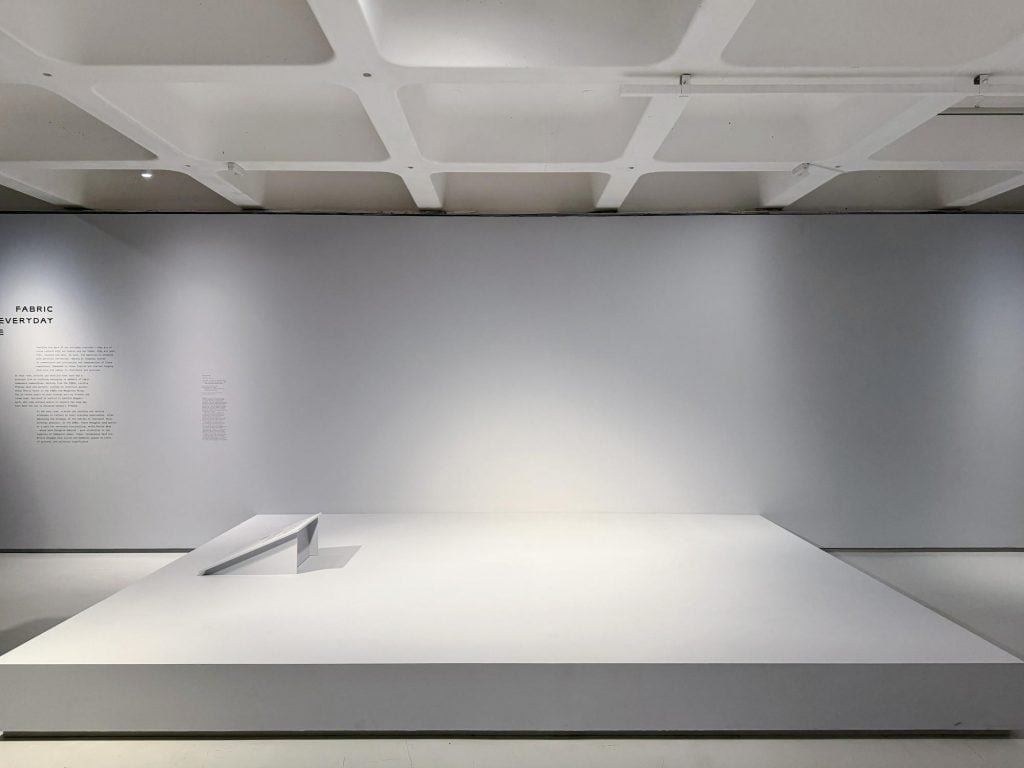Art World
Collectors Withdraw Loaned Works from London’s Barbican in Solidarity with Palestine
The two quilts by Loretta Pettway were part of a show about political resistance through art.

The two quilts by Loretta Pettway were part of a show about political resistance through art.

Jo Lawson-Tancred

Artworks have been withdrawn from the Barbican in London in protest of the arts center’s decision to cancel a lecture titled “The Shoah after Gaza” by Indian writer Pankaj Mishra. Branding the move an act of censorship, collectors Lorenzo Legarda Leviste and Fahad Mayet requested the two quilts by Gee’s Bend artist Loretta Pettway that they lent to the institution be removed from the exhibition “Unravel: The Power and Politics of Textiles in Art,” which opened on February 13.
Shortly after the news of the cancelation broke on February 6, Leviste and Mayet contacted the curators of “Unravel” to provide an explanation for its decision to cancel the talk. They have now published their full email correspondence with the institution online following the removal of the quilts.
Last month, the Barbican withdrew from an agreement to host the lecture with the London Review of Books (LRB) after it learned the title of the talk and realized it would be about Israel’s ongoing war on Gaza, according to a report in the Guardian.
In a statement issued on February 14, the Barbican said that the LRB had prematurely advertised the center as the venue for the lecture series before this had been officially agreed. It claimed that it had therefore not been able to give the topic the “dedicated and thoughtful care” that the Barbican believed it needed. The LRB has denied this account, claiming that the event was canceled “at a late stage.”
“We reject the Barbican cloaking its violent suppression of speech with the gloopy language of ‘care’,” the lenders stated, in reference to the center’s public statement. “The vagueness of this language guarantees that any artwork, performance or public conversation at the Barbican can be arbitrarily shut down for its ‘sensitive’ subject matter, or because not enough ‘care’ can be provided. We refuse to accept this.”

Loretta Pettway’s quilts were removed from the “Unravel” exhibition at the Barbican in London in February 2024. Photo: Courtesy of Censorship at the Barbican.
The collectors added that their decision to withdraw the quilts from “Unravel” was enacted in the spirit “of the artists included in the exhibition, many of whom were compelled to weave and sew and stitch and make as a response to repressive regimes and systems of power.”
In a sign placed beside the now empty platform where Pettway’s two quilts were once installed, the Barbican’s curators of “Unravel” have issued a brief explanation for their absence. “We respect the lenders’ decision,” they wrote.
Pettway did not respond to a request for comment on the decision to remove her artwork.
In their online statement, Leviste and Mayet also brought attention to an incident last year where the radio host Elias Anastas was asked to “avoid talking about free Palestine at length… just to further safeguard the audience.” His interviewer Nihal El Aasar was also advised to “steer clear of thorny issues,” according to the Guardian. Last November, the Barbican hosted the London Palestine Film Festival 2023.